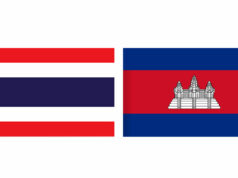TOKYO — Japanese Prime Minister Shinzo Abe on Thursday dumped arch-conservatives and embraced critical voices in a cabinet revamp he hopes will stem a decline in public support after a series of scandals and missteps.

Political blueblood Mr. Abe, in office since late December 2012, has pushed a nationalist agenda alongside a massive policy effort to end years of on-off deflation and rejuvenate the world’s third-largest economy.
But he has seen public support rates plummet in the past few months over an array of political troubles, including allegations of favoritism to a friend in a business deal — which Mr. Abe strongly denies.
Mr. Abe’s Liberal Democratic Party (LDP) suffered a drubbing in local Tokyo elections last month, which analysts and newspapers blamed on an increasing “arrogance” on the part of the prime minister.
“I deeply regret that my shortcomings have invited this situation,” a chastened Mr. Abe said earlier in the day ahead of the announcement of the cabinet changes.
Mr. Abe reappointed former defense minister Itsunori Onodera after close ally and fellow nationalist Tomomi Inada resigned from the post last week following a scandal at the ministry over the handling of military documents.
He also tapped a pair of lawmakers who have opposed some of his policies.
New foreign minister Taro Kono is the son of a dovish top diplomat known for issuing a landmark 1993 apology as chief cabinet secretary over Japan’s use of “comfort women” — a euphemism for sex slavery — in World War II.
The US-educated 54-year-old is known as an independent-minded, anti-nuclear power advocate, in sharp contrast to Abe’s support for atomic energy.
Mr. Kono replaced Fumio Kishida, who served as top diplomat since Mr. Abe came to power and is often seen as a future prime minister.
Mr. Kishida moved to a top post in the LDP.
Meanwhile, Seiko Noda, 56, at one time hailed as Japan’s most likely first female prime minister and who in 2015 tried to challenge Mr. Abe for the LDP leadership, was named internal affairs minister.
She replaced Sanae Takaichi, another close Abe ally with strongly nationalist views.
Mr. Inada, the former defense minister, delighted conservatives during her tenure but drew domestic and international criticism in December when she prayed at a controversial war shrine in Tokyo.
Returning defense chief Mr. Onodera, 57, held the post for nearly two years until September 2014, and has vowed to restore unity and confidence within the ministry.
His appointment also comes amid rising tensions surrounding North Korea’s missile development.
Pyongyang launched its latest missile late Friday, just hours after the US and Japan moved to step up sanctions against it following its earlier test of an intercontinental ballistic missile capable of reaching parts of the United States.
“The environment surrounding our country, including the North Korean nuclear and missile issue, is becoming increasingly severe,” Chief Cabinet Secretary Yoshihide Suga told reporters.
“In terms of diplomacy, we have a mountain of crucial issues,” he added. “I’m certain the new foreign minister will tackle them.”
The new cabinet was announced by Mr. Suga, the government’s top spokesman.
Mr. Suga, along with finance minister and deputy prime minister Taro Aso, were among officials who kept their posts. — AFP



